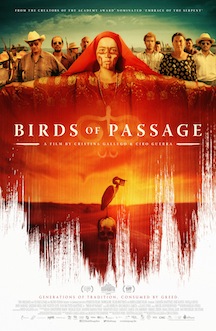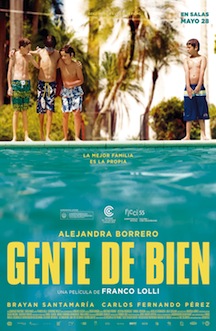Direction: Fabian Hernandez
Country: Colombia
A Male, the debut feature by Colombian filmmaker Fabian Hernandez, unfolds as a modest low-budget drama set in the unforgiving streets of Bogotá, dominated by gangs. The protagonist, Carlos (Dilan Felipe Ramírez Espitia), is a 16-year-old who lives in a youth shelter. The central character, Carlos (Dilan Felipe Ramírez Espitia), a 16-year-old residing in a youth shelter, grapples with a girly face and a fragile physique in the predominantly masculine and violent neighborhood. His sole aspiration revolves around surprising his incarcerated mother with a visit on Christmas Day.
The premise holds promise, and we feel grateful for this is not your typical gangster or coming-of-age flick. However, the potential dissipates rapidly as the narrative fails to build sufficient tension, never culminating in a compelling climax. The lonely boy's struggle to assert his toughness lacks the depth needed to resonate emotionally. While sensitive to the mix of sadness, bravery, and resolution within Carlos, the film stumbles in handling a subject that doesn’t cope well with melodramatic insistence.
I was unable to connect with the protagonist and what he was going through. Perhaps the director lacked the skills to coax a psychologically complex performance out of the debutant actor. Hence, the film doesn’t deliver enough as each development is unadorned and plain, lessening in emotional power and culminating in an unsatisfying ending. Hernandez's exploration of a misfit in conflict with the toxic masculinity of his environment ultimately misses the mark.




























